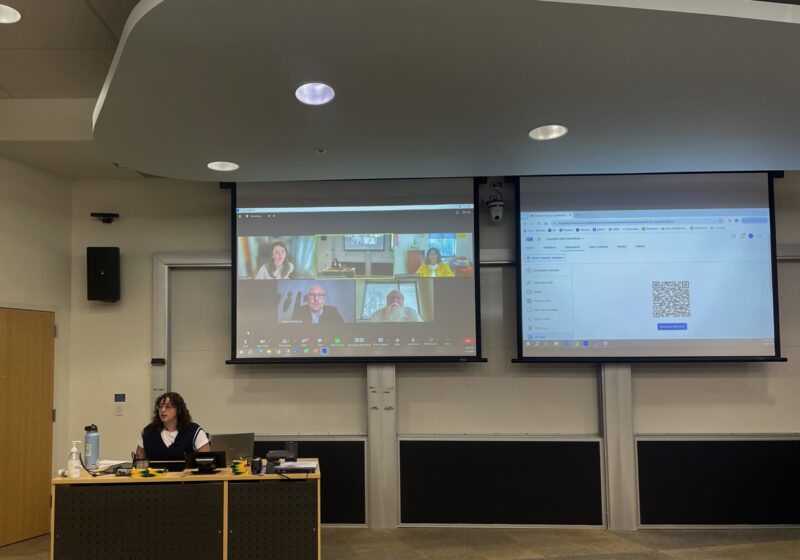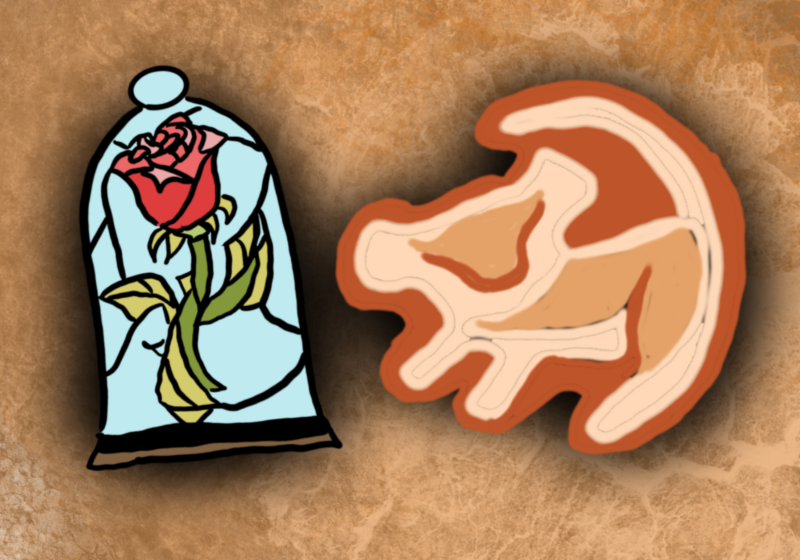Homeless.
What does that word evoke? What image comes to mind when you think of a homeless person?
If you’re like most people, chances are that you think of a person idly sitting on cardboard, on a street corner, with their hands outstretched for spare change. This is, after all, what most students have consciously experienced when it comes to homeless people.
Last Saturday night to Sunday morning, students occupied the area outside Wilson Commons for the annual Shack-a-Thon, hosted by the UR chapter of Habitat for Humanity. During the event, participants teamed up to build “shacks” out of cardboard and duct tape to “both simulate homelessness and raise awareness about impoverished housing in the Greater Rochester community.” This event has raised funds for worthy causes, but it may inadvertently harm the population it is trying to help.
Any Shack-a-Thon passerby would be able to identify the students playing inside their cardboard boxes as, essentially, a homeless-themed slumber party. The event is intentionally arranged to “simulate homelessness,” but what could someone gain by “[simulating] homelessness” – with additional music entertainment, free food, air conditioning in the case of adverse weather, or cover in the case of drizzle, and as many pillows as they want – for a single night? Will participants wake in the morning in their boxes on one of the most endowed campuses in the U.S., all suddenly hit with a collective epiphany that they understand what it’s like to be homeless?
What’s more, how are we “raising awareness” with this event? We are all “aware” of the visible homeless who populate the streets of any city — but how aware are we of our peers who have a history of homelessness, one equally severe as of those being impersonated? What of the students who attend classes alongside us, the ones who have studied tirelessly and worked for scholarships to attend this institution, only to see upon their arrival that they’re being horrendously depicted as box-hobos? There’s stigma and shame in being homeless that keeps students from speaking up, though you might never get that impression from this shindig.
By creating a fun activity involving setting up a shack for the event and programmed entertainment, we are suggesting that homelessness can be fun, a spectacle. Students partaking in this event will be involved by choice and, at the end, they will have their cozy twin beds waiting for them in their dorms. This couldn’t be further from the stark truth for actual homelessness; in 2016 it was estimated that 77,486 people in the U.S., or 14 percent of all homeless people, are “chronically homeless,” meaning that they have experienced homelessness for at least a year – or repeatedly while struggling with a condition like mental illness, addiction, or disability. People who deal with homelessness are also vulnerable to a slew of other social issues, such as hunger and a lack of health care. There is nothing fun about homelessness. To suggest that this event could give any semblance of understanding to what this situation feels like is insulting.
At best, Shack-a-Thon trivializes the experiences of those who have struggled with housing insecurity, alienates members of our community who have dealt with housing insecurity, and perpetuates the stereotypes that we live in boxes far, far away from our pristine campus bubble.
At worst, it outwardly ridicules people who deal with housing insecurity by superficially (and poorly) replicating homelessness in such a visible, perhaps cruel, manner. Though in poor taste, I cannot deny that this event does some good by donating proceeds to Habitat Restore Build site and to Flower City Habitat for Humanity. But, let’s call Shack-a-Thon what it actually is: a satire of a debilitating problem that creates both slight financial philanthropy and active societal harm for the homeless.
Maybe it’s time to retire Shack-a-Thon in favor of a less offensive, equally charitable event — or at least stop trying to equate shack building with homelessness.





